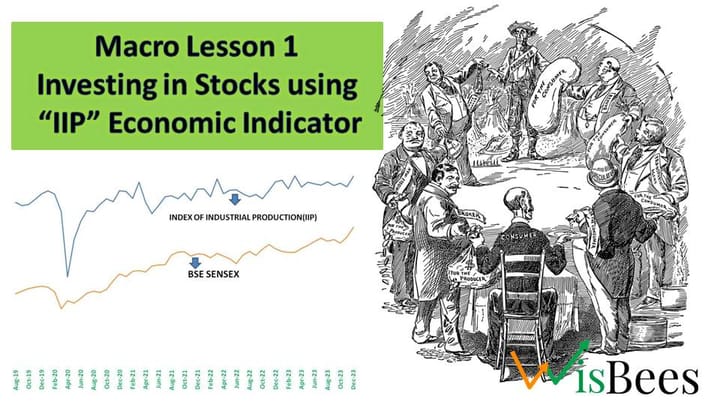"The Death of Indexation Benefit for Debt Mutual Funds: Positive impact on Banking Sector"-Simplified

Ahh, I had hoped to keep this article brief, but unfortunately, there was no room to eliminate any words. Nonetheless, I aimed to simplify the article.
Recently Government of India passed a Finance Bill, which created a lot of uproar among traders and Investors. This is because of mainly two things in Finance bill. One is removing the LTCG benefit(or Indexation benefit) available to Debt Mutual Funds, and another is increasing the 25% Security Transaction Tax(STT) on Futures and Options trading.
However, removing indexation benefits on Debt Mutual Funds has garnered the Center of attention from many experts. Experts are expecting this move as a blow to such a popular method of Investment. According to our Finance Minister, this was done to reduce Parity or, simply, taxation differences between two similar instruments like Fixed Deposits and Debt Mutual Funds.
Why is such a step taken now when there is an ongoing banking crisis in US and Europe? Is this a step to improve the bank's situation in India by attracting more bank deposits? or is it really a motive to reduce tax arbitrage between Fixed deposits and Debt funds, as the Finance minister Stated?
With every adverse news, there lies an Opportunity. We will discuss the opportunity in the last. First, we will understand two things 1. What is Indexation Benefit? And 2. How much advantage that had on Debt Mutual Fund Return?
Let’s Simplify this.
A few years back, I watched a Video of Radhika Gupta, CEO of Edelweiss AMC, where she was talking about the Indexation benefit a Debt mutual fund has over fixed deposits. That was quite interesting as it showed how much a Debt mutual fund can be tax efficient in comparison to traditional Fixed Deposits. That can be one of the reasons why many Rich class investors used to invest in Debt funds.
The news of the Indexation benefit being gone is a big hit on the Upper middle class to the Rich class compared to lower middle class earning people. You will understand why in the subsequent description.
I am not a tax expert, but I'll try to make the article as simple as one common man can understand. Let’s do some calculations and understand what an Indexation Benefit on a Debt fund is!
The similar alternate instrument, Fixed Deposit, doesn’t come under the purview of capital gain tax as they are not considered capital assets. Capital assets are Stocks, Mutual Funds, Real Estate, Debt mutual funds etc. If you exit an FD, the returns generated from FD are taxed as per the individual's applicable income tax slab rate.
How does this work?
Case -1:-(FD)
Let’s say in India, you earn well, and you come under the 30% tax slab. You have generated a return of 8% in Fixed Deposit. How will you be taxed for your 8% FD Return?
You have to pay 30% tax on the whole 8% Return earned from FD. So your net return would be
= 8%-(30% of 8% return)= 5.6% Net Gain.
So it means although you had an 8% Return, you bagged only 5.6% as a net gain. Now just change the instrument from FD to debt mutual fund and see the effective return.
Case -2: (Debt Mutual Fund)
Let’s say you are in the same 30% tax slab and gained the same 8% Return on Debt Mutual Fund. Here your current tax slab will not have an impact on your Debt MF return. Then how will you be taxed for your 8% Debt MF Return?
Here comes the Indexation effect. This is basically an inflation-adjusted return. The 8% Return that you have gained is taxed at a rate of 20% after the Indexation benefit. The current inflation rate, let’s say, is 5%.
Here the taxable amount will be just 8%-5%=3%. So one has to pay 20% tax only on a 3% Return amount. So the net gain will be
=8%-(20% of 3% taxable Return)= 8%-0.6%= 7.4% Net Gain
This is a very significant difference in Return between a traditional Fixed Deposit and a Debt Mutual Fund. Now one has to pay the same tax rate as Fixed deposit on his Debt mutual fund gains. This becomes more vital for those who are at a higher tax slab above 20% to 30%. So yes, this will be a discouragement for HNI and Ultra HNI clients to invest in Debt Mutual Funds as before.
Note: Indexation benefit was possible for Debt mutual Funds being held for more than three years Tenure.
What else?
The removal of the Indexation benefit is also applicable to Gold Mutual funds and International mutual funds(Foreign equity funds) along with debt funds. This is implemented from April 1st. This is only applicable for fresh investments from April 1st. The bill is applicable to Debt oriented funds(With less than 35% equity invested in domestic stocks). However, there are still tax-efficient ways of investing in debt as well as equity by investing in balanced advantage funds and equity savings funds.
Opportunity Created for Banking Sector
Now think, If investors are discouraged from Debt Mutual funds, where will they go? They may go to a similar characteristic instrument Bank Fixed Deposits, to reduce their risk exposure and working capital needs. Experts are expecting a Demand in Banking Sector because of this. They expect HNIs and Ultra HNIs to invest in FD for similar risk exposure.
Clearly, Indexation Benefit was a major reason for investment in Debt mutual fund which provides just slightly higher return than FD. The risk exposure can be more in Debt schemes than in FDs.So now we have to wait and see where the investors are moving.



